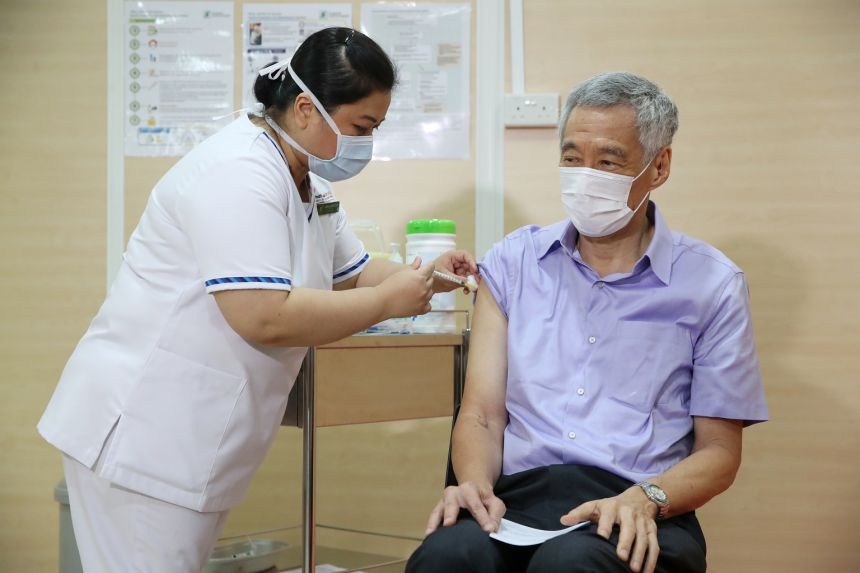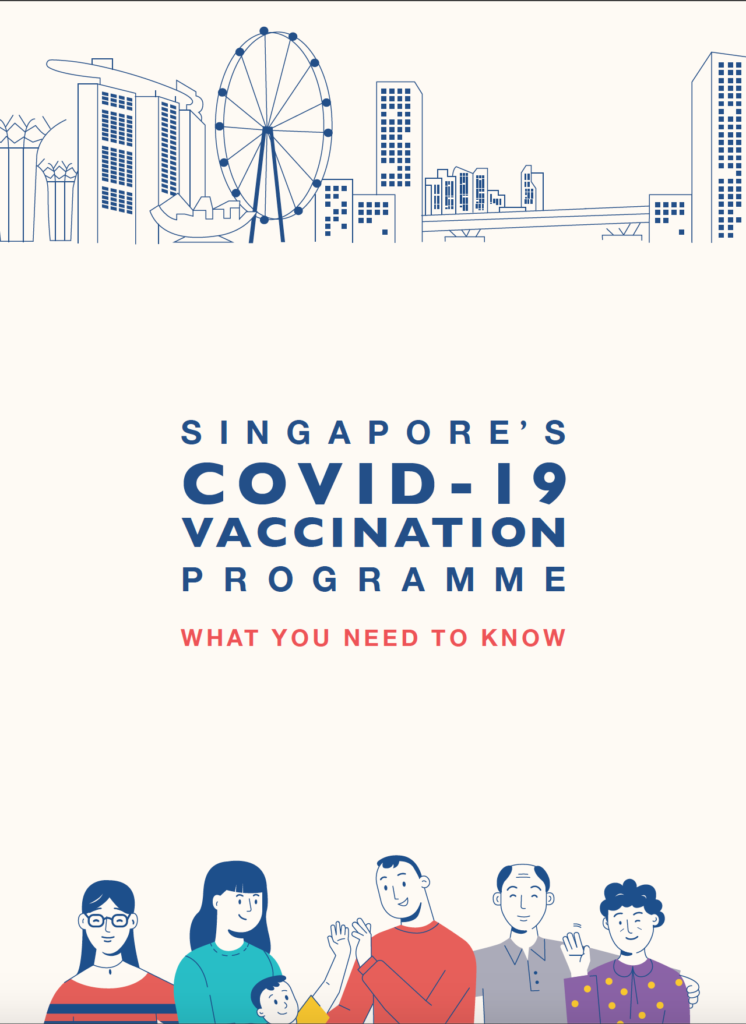Singapore has just received its first shipment of the Moderna Covid-19 vaccine,. This is the second Covid-19 vaccine to be approved for local use, following the Pfizer-BioNTech vaccine. These vaccines have been described to be instrumental in the global effort to combat the pandemic. Yet despite strong evidence of vaccine efficacy, ‘anti-vaccine influencers’ still lurk online, feeding fears and stirring up misinformation. DJ speaks to Siti to better understand her work in countering such anti-vax narratives.

I understand that you’re not a conventional ‘scientist’. Would you tell us about your work and how it informs your knowledge of vaccines?
I have been working on early childhood programmes for the underprivileged for the last 4 years. I’m also a Psychology graduate! At university, there was a large focus on evaluating research papers. We were made to dissect the methodology used and whether the results and conclusions reached were valid. We explored biases and invalid inferences made in papers. So that really triggered my sense of “cynicism”. There was also a recent overhaul of Psychology findings where a lot of the findings could not be replicated and that just reiterates how important it is to be doing your due diligence in evaluating “scientific” sources.
I also work with many young children and see many families defaulting their children’s vaccinations—not because they don’t believe in it—but because they just don’t have the resources or capacity to get their children vaccinated so they are automatically immunocompromised. So I get quite agitated when I hear of people denying the science behind vaccination and refusing to get their children vaccinated, which risks the children that I work with. Especially when the sources they produce to back their choice are not legitimate.
You addressed the content of a particular ‘anti-vaccine influencer’ on social media. What motivated you to look into this? Do you have any experience in working with the anti-vaccine movement or pseudoscience in general?
I didn’t follow her on social media but her anti-vaccine statements spread quite rampantly and that led me to check the messages that she had been spreading. Now, I understand that there’s free speech but what is more important is responsible speech, especially given one’s “influencer” status. I think it’s important to recognise the following that you have and being accountable to the views you express. I had a friend who expressed that she felt guilty for vaccinating her children after the influencer’s messages!
My experiences with the anti-vaccine movement is (thankfully) quite limited but I have heard many stories about pseudoscience. A prominent one that comes to mind is the anti-formula milk movement amongst parents. There have been horror stories of babies dying because mothers who have limited breast milk (which is common and does not make you any less of a mother!) refuse to give formula milk to their child and that led to death by malnutrition. There are Facebook pages where mothers encourage each other to persevere through their lack of milk production and remind each other on how bad formula milk is. When the science clearly states that while there are short-term benefits to children who are breastfed, there are no long-term benefits. I assure you I have never met anyone and said to myself, “oh this person was definitely breastfed/formula-fed”.

What have been the results of your investigation and research thus far?
I think the recent pseudoscience movement can be attributed to how accessible information (even false ones) is for many around the world, social media and people’s belief in their own grandeur – that personal experiences make you an expert on things. Put all these factors together and you basically have many self-appointed experts sharing their opinions. Statistically, it’s very plausible for many people around the world to share similar experiences and when they set up platforms for a specific group of people to congregate and share their experiences it makes it seem as if these opinions/experiences are legitimate even if they’re not backed by any concrete research.
What we can do to help the non-specialised audience be better equipped to understand vaccines, pathology, and perhaps also separate science from pseudoscience?
I think it’s important to speak the language of the masses. Often times, we can get very technical with our terms. So when sharing, use simple terms and over the course of the conversation, emphasise where you got your sources from and why they are more legitimate than the pseudoscience “evidence”. Learning happens implicitly as well. Also take a very empathetic approach – it serves no one any good if you approach it in a “you are so wrong” / “how can you believe such a thing”? No one likes being put down. We have to make them feel like they are a part of a well-informed community for them to want to take the time to fact-check their sources on their own accord.
This can also contribute to the erosion of public trust in experts—whether in public health, life sciences, or medicine. I have experienced many instances where medical lexicon and technical jargons can alienate the audience and breed disinterest. Again, experts need to take on a more empathetic and soft approach. If people can’t understand what you’re saying, they won’t listen to you. People are drawn to people they understand and who appear to care about them, hence the Facebook groups.
What are your thoughts on the vaccine or on COVID-related issues?
Given the current pandemic situation, I think accurate information regarding vaccines is even more important. People are naturally fearful, especially our elderly population! So we should endeavour to seek reliable medical advice on the vaccines, especially if you have any pre-existing conditions. MOH has also outlined detailed information on the vaccine including the approval process of the vaccine and the efficacy of the vaccine: http://moh.gov.sg/covid-19/vaccination. I truly hope that those who are able will be vaccinated for everyone’s sake. As I said earlier, there are people who are immunocompromised and at this stage, the vaccine is not recommended for certain groups like pregnant women and children, so we should do our part to protect those who are not able to be vaccinated.

Do you have any closing remarks? Thank you for participating in this!
Just want to emphasise the importance of being kind! We all have a role to play in this war against pseudoscience and anti-vaccine movements, but we can’t win this fight through aggression or condescension which would only divide people. Let’s create a safe space for these conversations and clarifications to happen so we can have a safer, more well-informed population!
Thank you for having me to speak on this, DJ!




